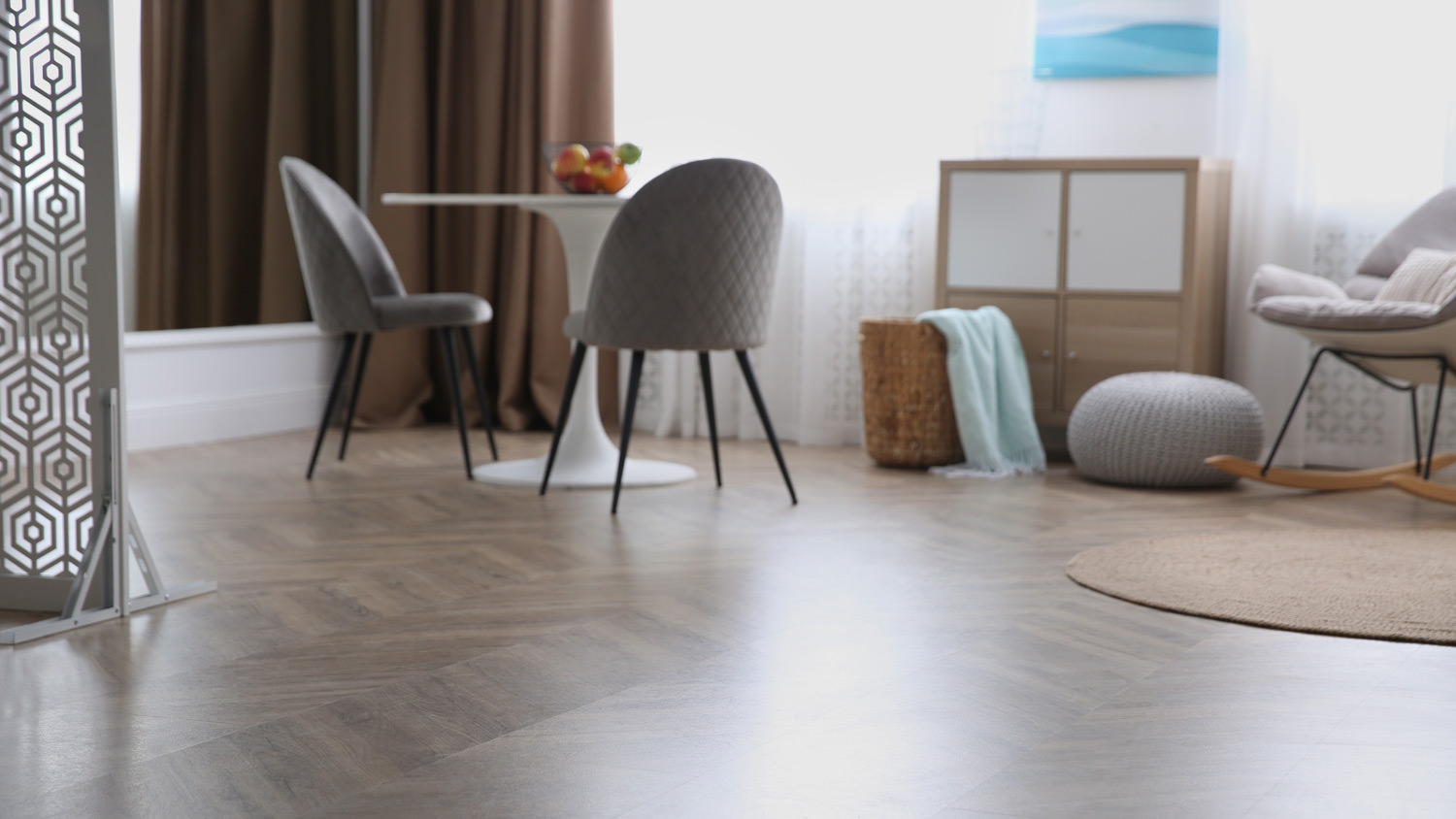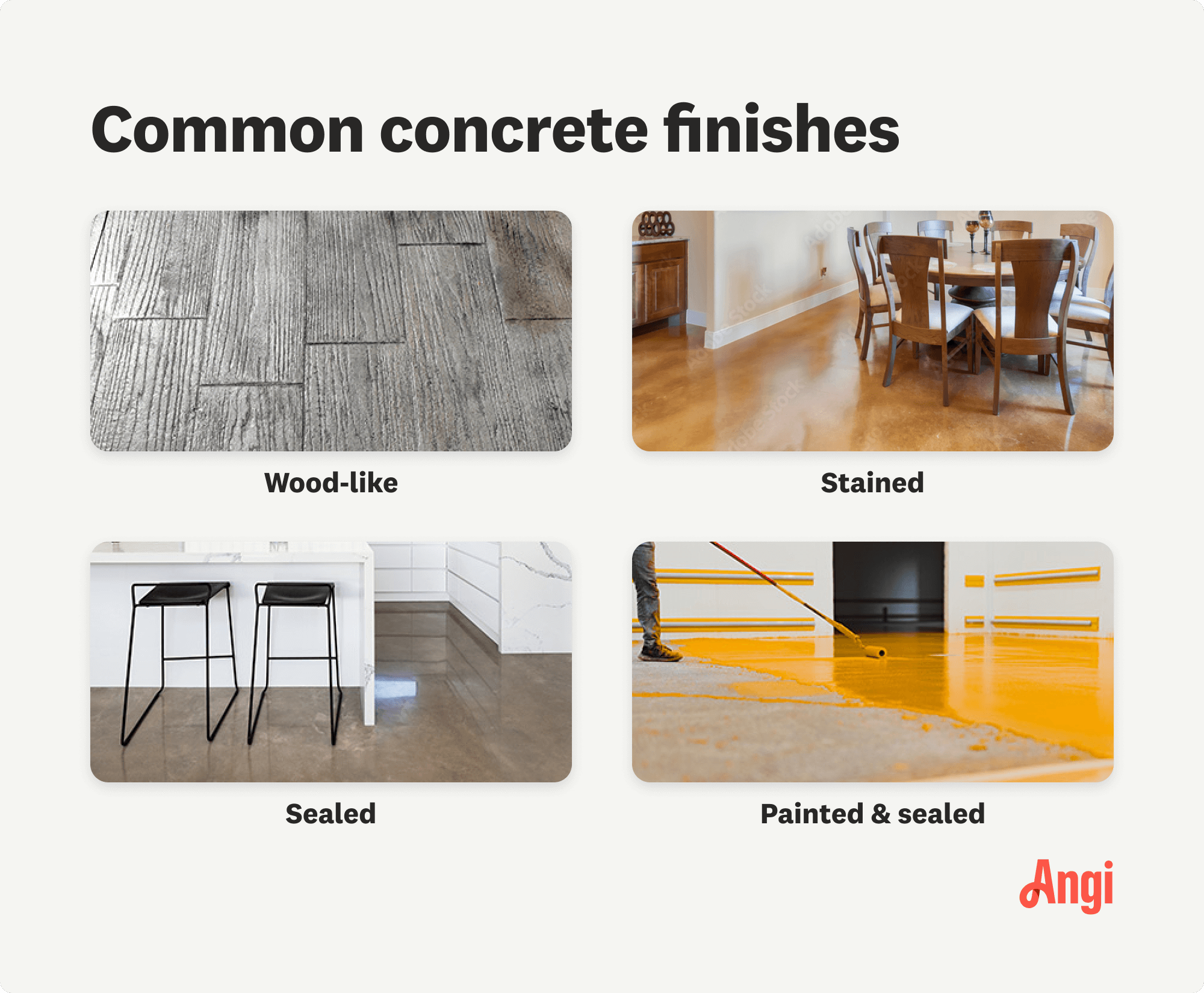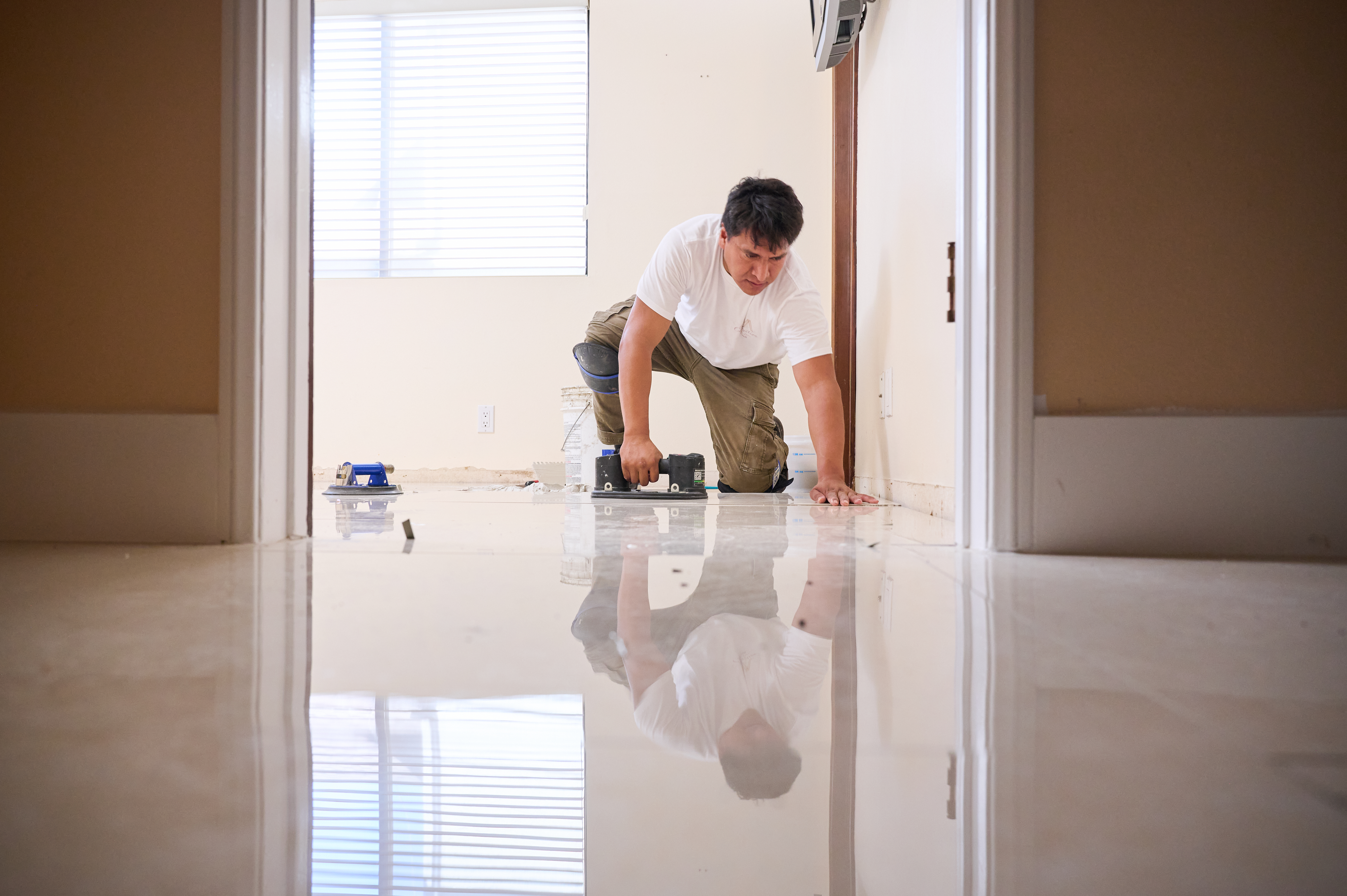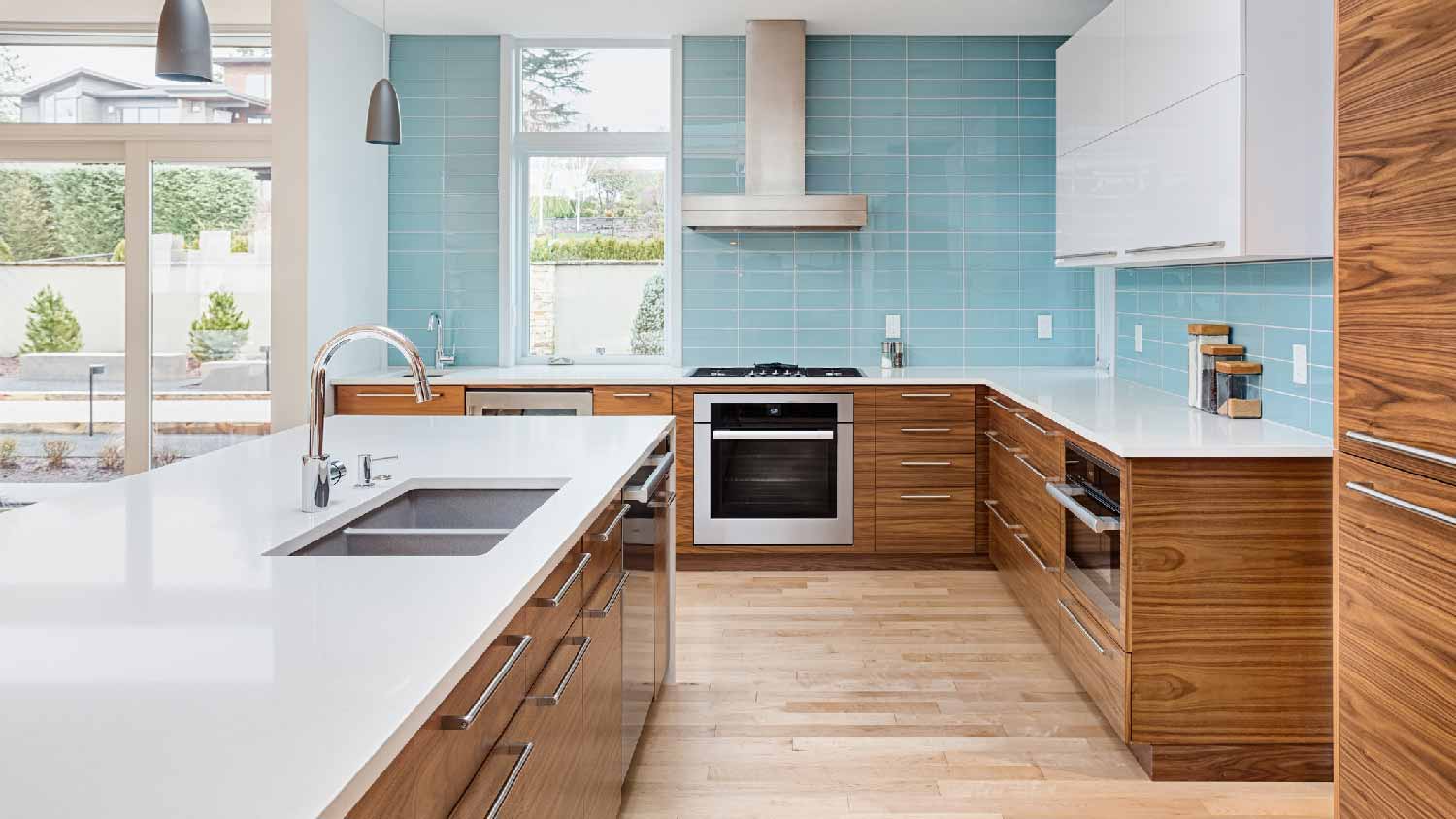
Find out the average vinyl floor repair cost, key price factors, and ways to save. Get accurate estimates to plan your vinyl floor repair project.
Flooring costs depend on your project and location. Check with a local pro for your specific job.
Size is the biggest factor affecting your costs when pouring a concrete basement floor.
Materials account for 40% to 60% of your project budget, with concrete, reinforcement, and finishing materials making up the bulk of expenses.
Professional installation is recommended because of the structural importance of basement floors and the requirement to meet local building codes.
The average cost to pour a concrete basement floor is $30,000, but you could pay anywhere between $2,000 and $80,000 or $4 to $25 per square foot. Factors affecting costs include the size of the area, type of concrete and finish, reinforcement needs, and labor. Adding decorative features like stamping or polished finishes also drives up the cost. Here’s what to anticipate when putting together your budget.
The cost of a concrete basement floor can vary quite a lot, depending on the size, materials, finish, and labor costs. Knowing how each factor affects your total cost can help you accurately budget for the project.
Pouring a concrete basement floor costs an average of $4 to $25 per square foot. Square footage is a major cost driver with a project like this. The larger the area you need to cover, the more expensive it will get. The easiest way to save money is to simply cover a smaller area. That may not be an option if you’re dealing with a set square footage, but it’s important to know how big of an impact this has on your price tag so you can consider alternatives.
| Square Footage | Average Cost |
|---|---|
| 500 | $2,000–$12,500 |
| 1,000 | $4,000–$25,000 |
| 1,500 | $6,000–$37,500 |
| 2,000 | $8,000–$50,000 |
| 2,500 | $10,000–$62,500 |
About 40% to 60% of the cost of your project will go toward materials. For an average $30,000 project, $12,000 to $18,000 will go toward materials.
Here's a breakdown of some of the typical materials you'd need to purchase and the range of prices you'd expect to pay:
| Materials | Average Cost |
|---|---|
| Concrete | $3,250–$13,500 |
| Form and finishing | $1,000–$5,000 |
| Reinforcement | $150–$750 |
| Sealant | $600–$6,000 |
Concrete finishes range from basic to decorative, with finish options to suit any style and budget. Concrete can be stamped to look like wood or stone, stained, or painted, and each type of finish will add to your total project cost.
Certain types of polished concrete floors offer a sleek, low-maintenance surface. Compare polished concrete floors versus epoxy to determine which option best suits your needs and budget. Concrete finishing can cost an additional $2 to $10 per square foot.

With 40% to 60% of your budget going to materials, expect labor to make up the other 40% to 60% of the cost of your basement floor. This can be a time-intensive and challenging job, and you need it to be done correctly, which is why labor makes up such a significant chunk of the overall project cost.
So, if you're spending the average amount of pouring a new basement ($30,000), about $12,000 to $18,000 of that would go to labor.
If you want to go beyond basic concrete finishes, you can customize your floor with design elements for enhanced visual appeal and functionality.
Epoxy terrazzo systems create a durable surface with decorative aggregate chips embedded throughout and cost $25 to $90 per square foot. Custom colors and pigments can be mixed into the concrete or applied as stains, adding about $2.50 to $15 per square foot.
Concrete is a tricky material, but a local concrete flooring expert will know how to create the proper mix for your home and ensure installation goes off without a hitch, preventing mistakes that can lead to bigger problems down the line. A well-reviewed and regarded concrete flooring pro should also stand by their work, offering warranties for the project.
Finally, note that the cost to rent the equipment to mix and install concrete flooring will be significant—hiring a pro will save you this expense and ensure the project is completed correctly the first time.
Prepare to ask a professional about the size of the basement that requires concrete flooring—this will be the main cost factor
Thickness is another main consideration—a flooring pro can help you decide based on desired load capacity, the base flooring materials, and more
A flooring expert will also be able to walk you through the various finishes and designs you can choose for your concrete floor
Home is the most important place on earth, which is why Angi has helped more than 150 million homeowners transform their houses into homes they adore. To help homeowners with their next project, Angi provides readers with the most accurate cost data and upholds strict editorial standards. We extensively research project costs to develop the pricing data you see, so you can make the best decisions for you and your home. We rely on reputable sources, including the U.S. Bureau of Labor Statistics, academic journals, market studies, and interviews with industry experts—all to ensure our prices reflect real-world projects.
Want to help us improve our cost data? Send us a recent project quote to [email protected]. Quotes and personal information will not be shared publicly.
From average costs to expert advice, get all the answers you need to get your job done.

Find out the average vinyl floor repair cost, key price factors, and ways to save. Get accurate estimates to plan your vinyl floor repair project.

Your floors deal with a lot, and they may occasionally experience damage that requires your attention. Learn floor repair costs for your project.

Laminate is a solid choice for many homes because it's durable and budget-friendly. Check out this guide to learn about laminate flooring installation costs.

You love your furry friend, so choosing the best flooring for dogs can help reduce the maintenance you’re responsible for and make them more comfortable.

If you’re putting in new carpeting, you may be wondering if you should install your baseboard before or after carpet. Here’s how to do it the right way.

Updated flooring can make any room in your home feel brand new. Explore flooring installation costs in New York, NY, from materials to labor costs.